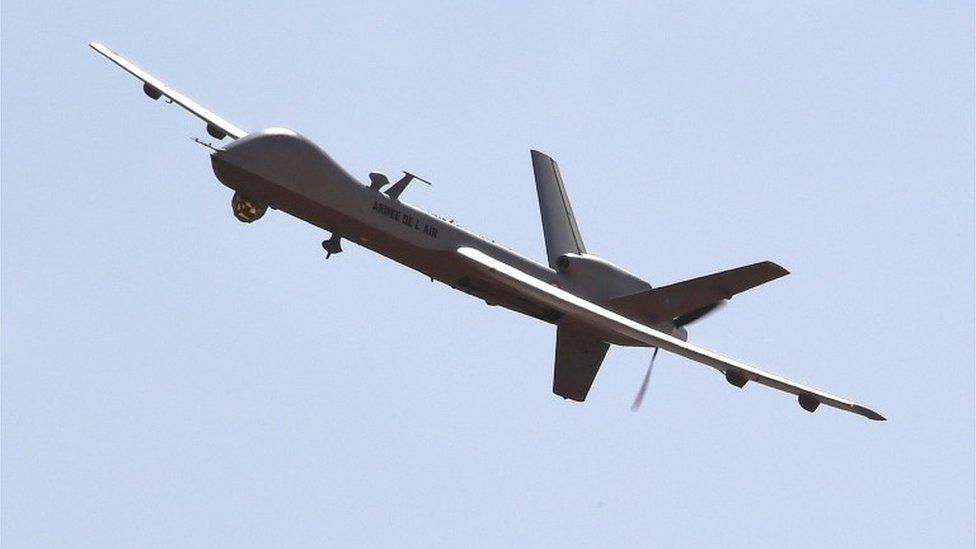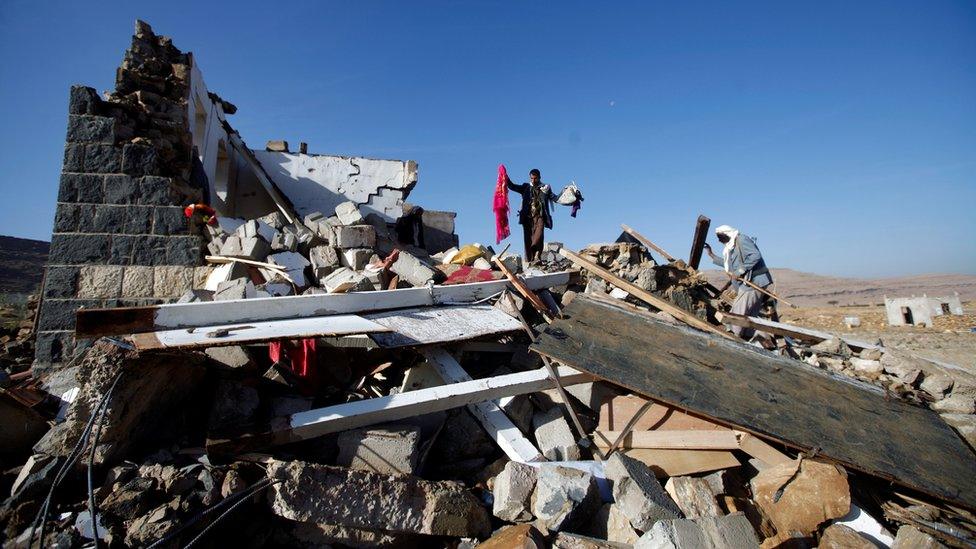Yemen: US air strikes 'target al-Qaeda' for second consecutive day
- Published

Washington's anti-al-Qaeda strategy in Yemen was stepped up under the Obama administration
US air strikes have hit suspected al-Qaeda targets in Yemen for a second consecutive day, according to Yemeni security sources and local residents.
The home of an al-Qaeda leader in the Yashbum valley, southern Shabwa province, was among the locations hit.
On Thursday, the Pentagon said it had carried out more than 20 strikes in Shabwa, Abyan and Baida provinces.
It comes a month after a controversial US raid that was reported to have left as many as 25 Yemeni civilians dead.
A US Navy Seal commando also died in the incident, which was the first military action authorised by President Donald Trump since he took office.
US raid on al-Qaeda in Yemen: What we know so far
The US has been battling al-Qaeda in Yemen for years. The jihadist group has taken advantage of the chaos caused by a three-year conflict to entrench its presence in the south and south-east.
'Dozen militants killed'
Local residents, quoted by AFP news agency, said military forces believed to be US descended on Wadi Yashbum village early on Friday, backed by drones and Apache helicopters, and fought al-Qaeda militants for nearly an hour.
They said there were a number of casualties, including children.
The home of al-Qaeda provincial commander Saad Atef was among three houses hit by air strikes, tribal sources said.
The Pentagon has not yet confirmed the latest strikes, but it did say it had carried out more than 20 strikes on Thursday in three separate areas: Shabwa, Abyan and Baida.

Yemeni officials said at least 12 suspected militants were killed in those strikes.
Pentagon spokesman Jeff Davis said they had targeted al-Qaeda militants, equipment and infrastructure. Another US official said they had involved both fighter jets and drones.
The US was criticised last month over a raid on a village in central Yemen, in which a number of civilians died - many of them children - as well as one US Navy Seal. Its target was the house of a suspected leader of al-Qaeda in the Arabian Peninsula (AQAP).
At the time, US military central command acknowledged that a number of civilians had been "likely killed in the midst of a firefight".
The US military later denied allegations reported by the New York Times, external that the mission had been compromised, and that the commandos knew about this.
The raid was approved just six days after President Trump took office, however, the planning for it began under the Obama administration.
- Published16 February 2017
